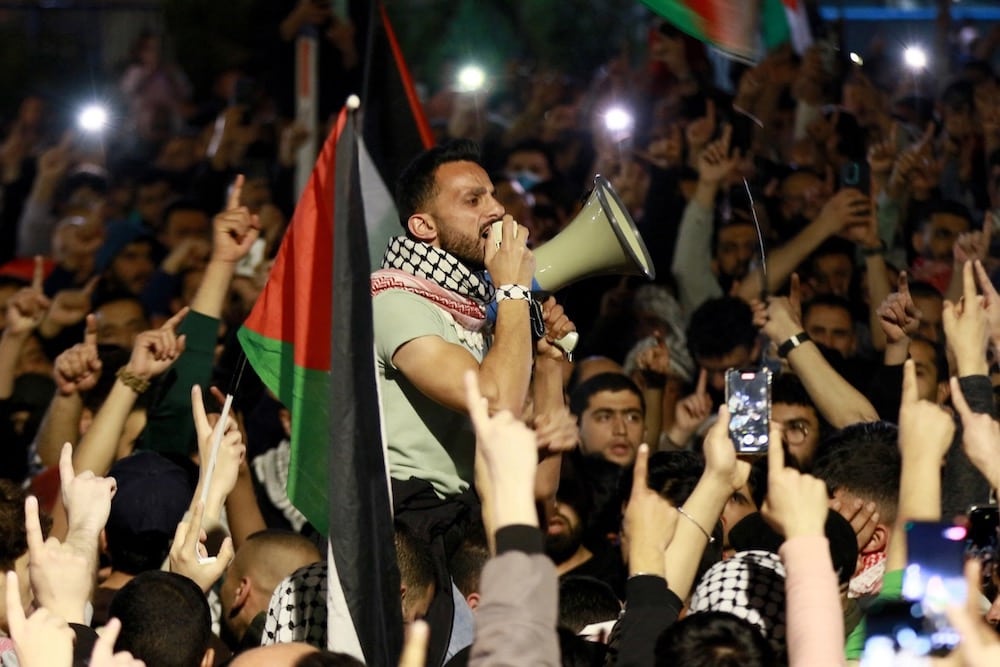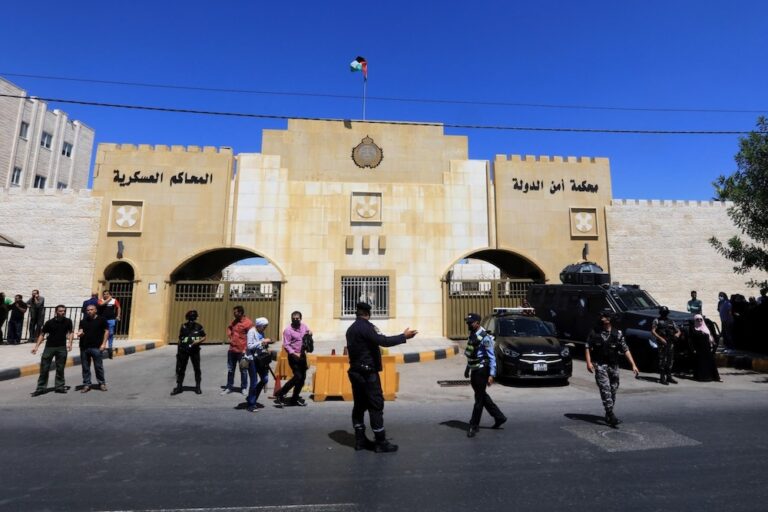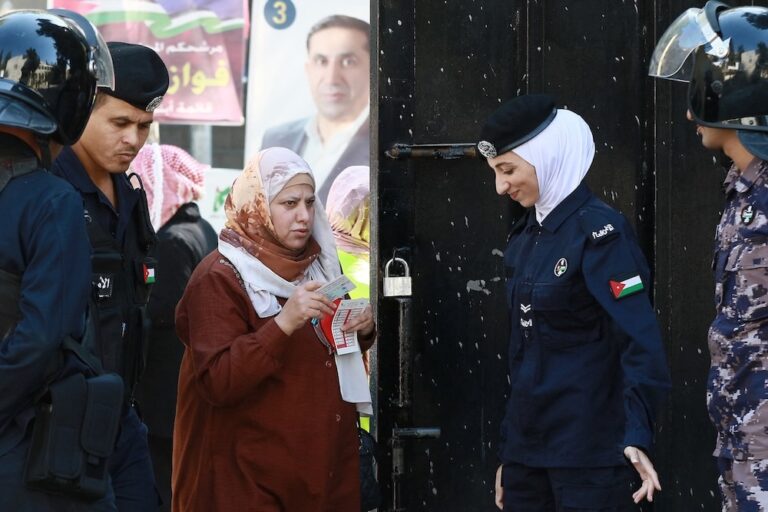The 2023 Cybercrime Law has been employed to prosecute and imprison peaceful protesters for social media posts expressing solidarity with Gaza residents.
This statement was originally published on gc4hr.org on 5 April 2024.
The Jordanian streets are witnessing a massive wave of tension and anger over the current political events and war in the Gaza Strip, which has led to thousands of Jordanian citizens taking to the streets, expressing their solidarity with the Palestinian people, and demanding that the Jordanian government take decisive decisions to express their support for them.
Since the start of the Israeli military campaign against the Gaza Strip in response to the attack in Israel on 7 October 2023, and the continuation of the horrific war crimes that claimed the lives of over 33,000 Palestinians, the Jordanian public has been angry, declaring a state of mourning and mobilisation in solidarity with the people of the besieged Gaza Strip and denouncing the war crimes. About one million Jordanians went out to express their solidarity with Palestinians and denounce the war on Gaza through peaceful marches and vigils in all governorates.
Recent events during the holy month of Ramadan contributed to fuelling popular anger and daily demonstrations in front of the Israeli embassy in the vicinity of the Rabieh area in the capital, Amman. Protesters have carried signs with slogans denouncing the crimes committed in the Gaza Strip and demanding that the government sever relations with Tel Aviv and cancel the peace agreement with the Israeli government. The Jordanian authorities arrested many people for their support or participation in these demonstrations, and some of them were charged under the new Cybercrime Law that was approved in August 2023, which came with a set of articles that are now used by the authorities in order to restrict freedoms and increase censorship of freedom of expression and opinion.
Press reports confirmed the widespread arrests of hundreds of citizens, including some passers-by, during popular protests in solidarity with the residents of Gaza from October 2023 until now. The Cybercrime Law of 2023 has been used to bring charges against peaceful protesters and imprison them for posts they published on social media networks declaring their full solidarity with the residents of Gaza, their anger at the scale of crimes committed against innocent citizens there, especially women and children, and their call to sever diplomatic relations with Israel and cancel the economic agreements signed with it. Some of them were charged for calling on others to organise popular protests and declare a general strike throughout the country.
The recent protests entered a decisive phase in the last week of March 2024, as citizens began to go out daily following multiple massacres in Gaza, but the Jordanian security forces began to intervene directly and forcefully dispersed the demonstrations and marches in support of Gaza. On 24 March 2024, security forces arrested hundreds of citizens, including a number of civil society activists. Activists circulated many clips of demonstrators gathering in the vicinity of the Israeli embassy on the same day, and Jordanian security forces arresting protesters on the grounds that they were vandalising public property.
Press reports confirmed that among the detainees was trade union activist and engineer Maysara Malas, who was arrested on 30 March 2024 while he was in the vicinity of the Israeli embassy. The authorities also raided his house and confiscated his computers and mobile phones.
Also on 30 March 2024, the Jordanian security forces arrested Ziad Ibhais, a Palestinian writer and researcher in Jerusalem affairs, and civil society activists Ruwaida Abu Radi and Nour Abu Ghosh, in addition to the head of the Supreme Committee of the Youth Sector of the Islamic Action Front Party, political activist Moataz Al-Harout, and the secretary of the sector, activist and politician Hamza Al-Shaghnoubi in Amman. The sources stated that Al-Harout was arrested in a public place, while Al-Shaghnoubi was arrested from his workplace in the Nuzha area in Amman. They were taken to the Al-Rashid security centre, and have not yet been informed of the charges.
These arrests come in the context of intensive arrests carried out by the Jordanian security services, which included dozens of political activists who participated in the recent popular movement, most of whom are Islamists.
Security forces targeted protesting women and practiced unjustified violence against them, in flagrant violation of their civil and human rights. On the evening of 30 March 2024, security forces arrested a group of women participating in the massive popular march near the Israeli embassy. Among them were women protestors Israa Khalafat, Nour Hamdan, and Israa Khreisat.
Citizens were angered by a video clip that was widely circulated on social media networks showing members of the security forces arresting a young woman participating in the popular march near the Israeli embassy, after they forcefully dragged her, and demanded the dismissal of the Minister of Interior. This clearly reflects the cruelty with which the security forces deal with women who participate in popular protests.
These arrests of women and men during the demonstrations are considered a blatant violation of international agreements and protocols protecting the right to freedom of expression and the right to peaceful assembly, which Jordan has ratified and which the Constitution guarantees to all Jordanians.
The Gulf Centre for Human Rights (GCHR) denounces in the strongest terms the Jordanian government’s adoption of this repressive pattern, which has become a common pattern adopted in recent years, and includes the curtailment of public freedoms of citizens, in particular the right to freedom of expression and the right to peaceful assembly.
GCHR calls on the Jordanian authorities to immediately release all those who were arbitrarily detained, or who were tried solely for peacefully exercising their right to freedom of expression and peaceful assembly, and to drop all charges against them. It must also amend the Cybercrime Law of 2023 in accordance with international standards and guarantee citizens’ right to express opinions.
The security forces must stop targeting women, and they must also understand that their mission is to protect citizens by all means and not to oppress them.



